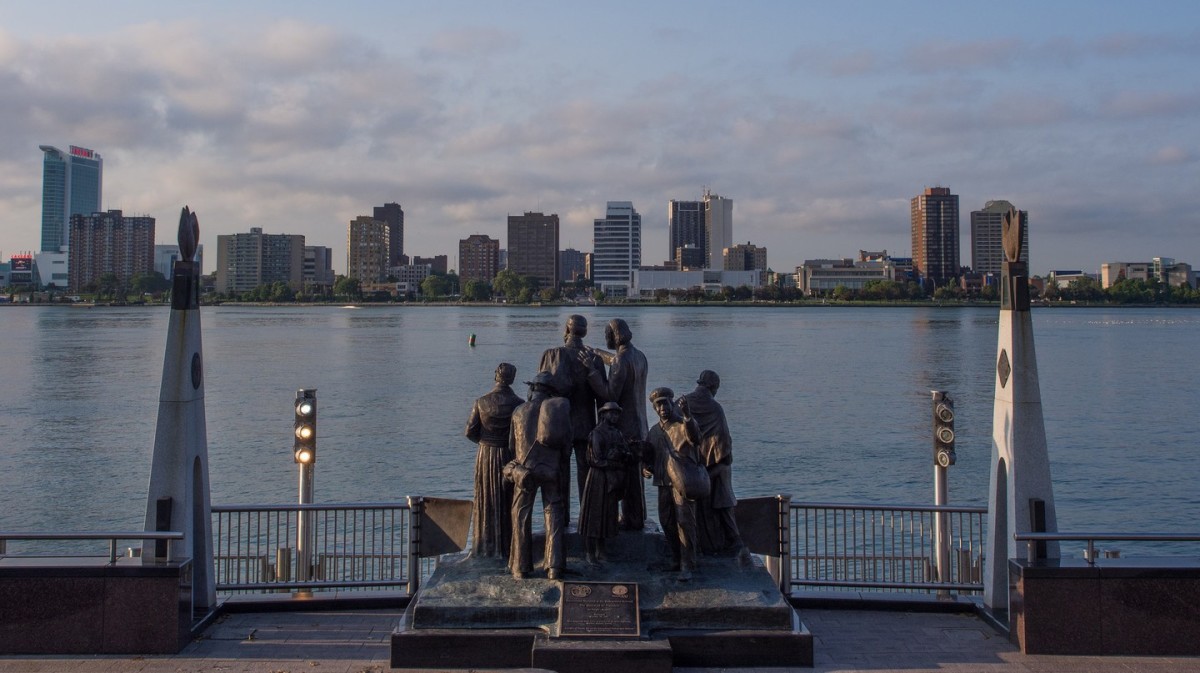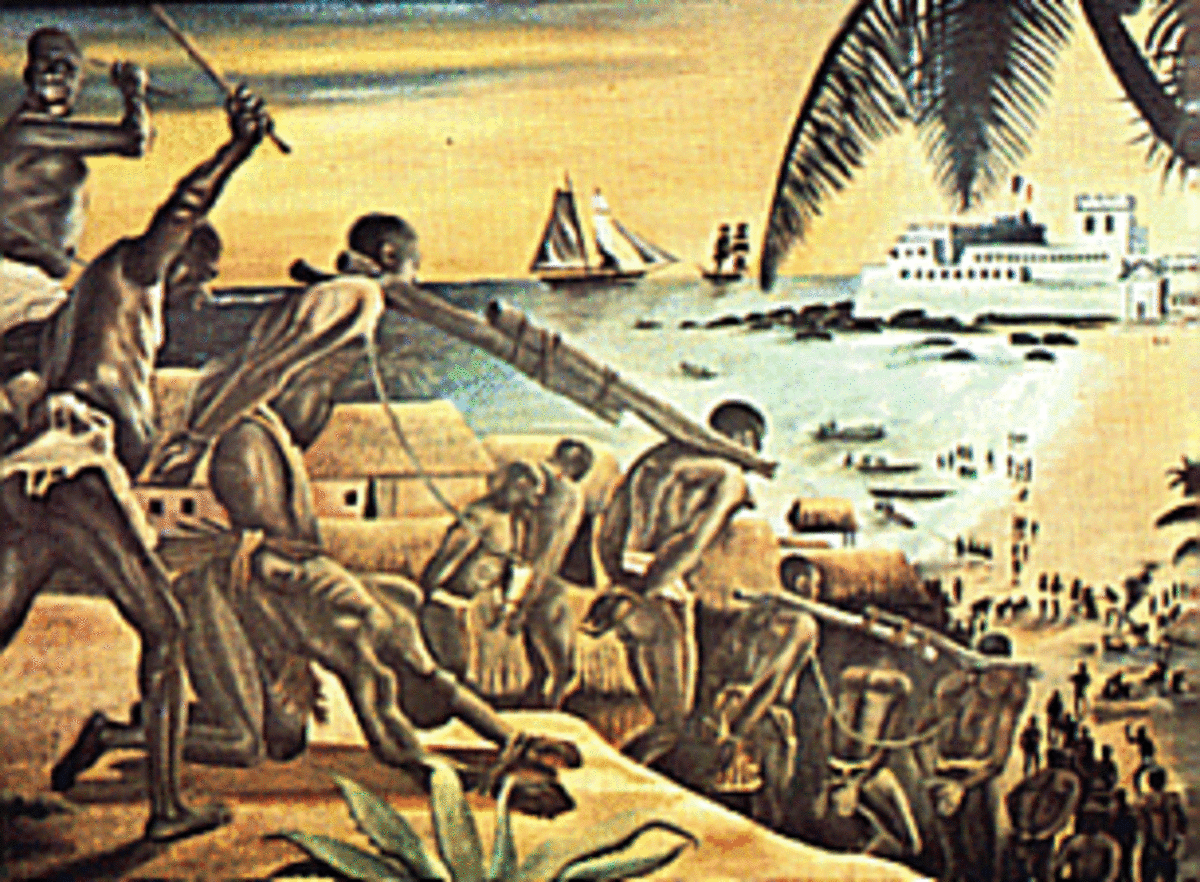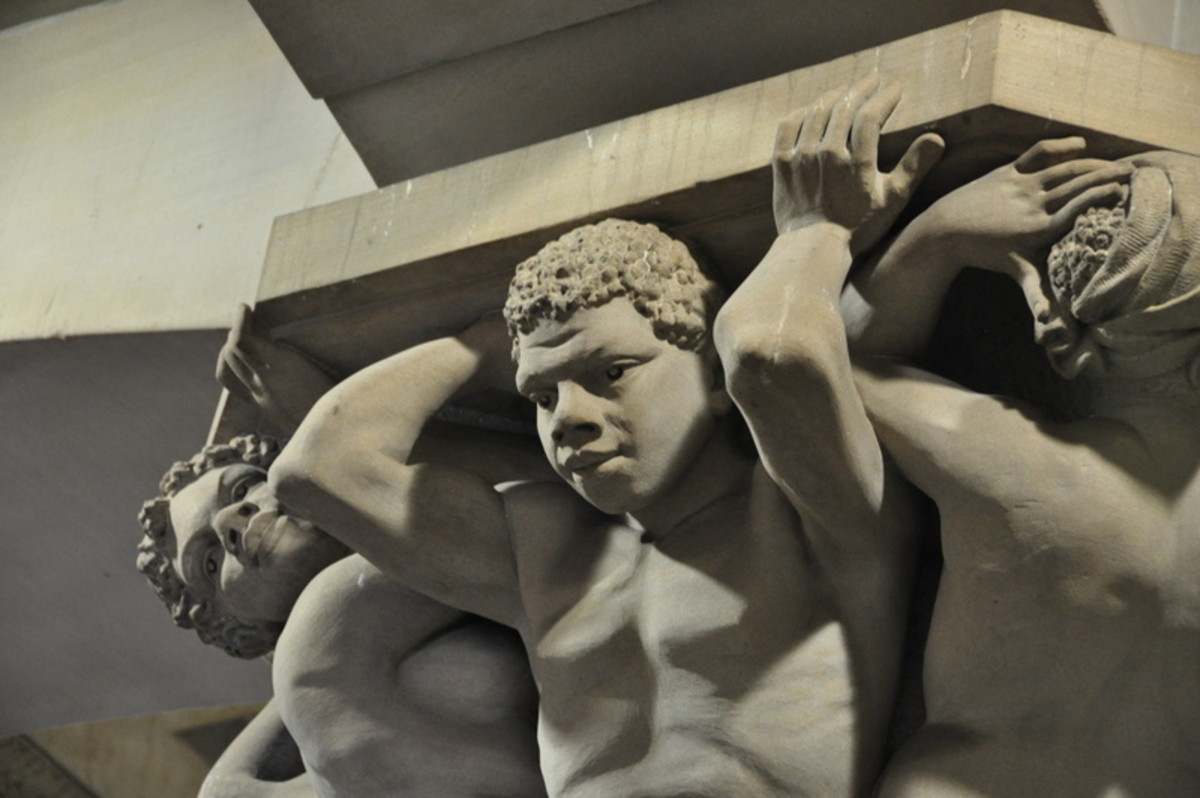Does the New Testament Really Support Slavery?
All photos public domain unless otherwise noted
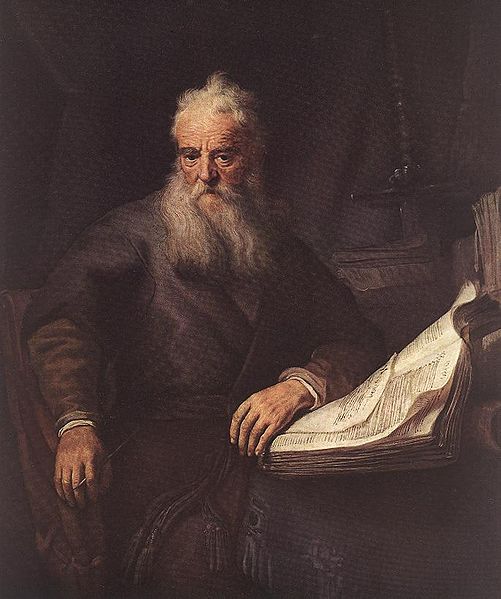
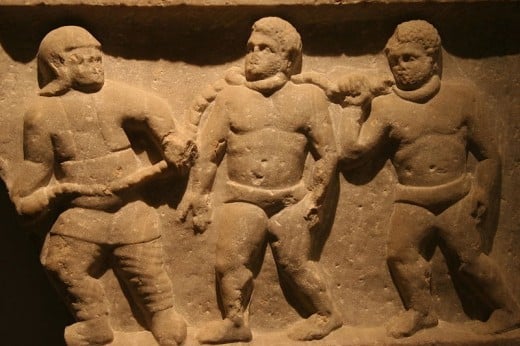
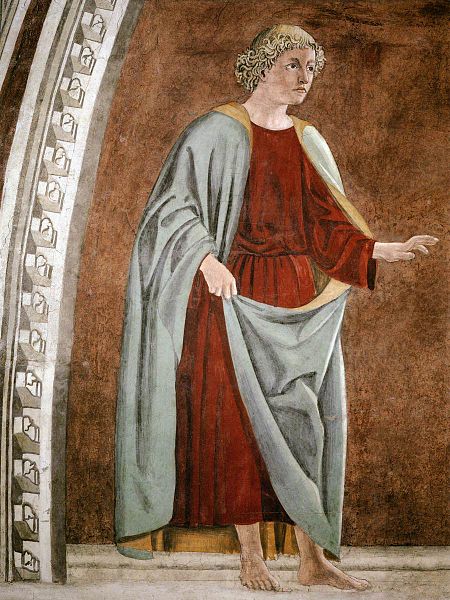
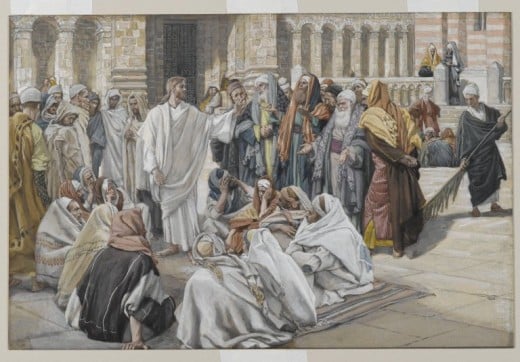
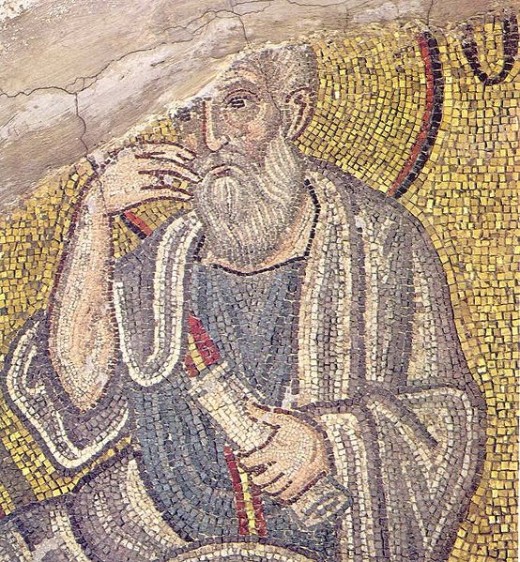
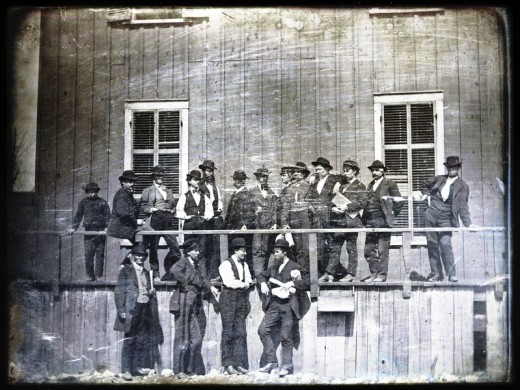

Slavery and Murder in the Bible Pt. 3
This is the third part of my series that answers, among others, the Hub "Do we get our moral code from the Bible?" In the previous installment I dealt with the Old Testament. This will examine the New Testament.
Whereas the Old Testament took place mostly in Israel and pertained to how the Israelites were to treat each other and foreigners, the New Testament was written after the Roman occupation of Israel and now things are very different. Old Testament "slavery" laws really dealt more with an indentured servant type of situation. IN the New Testament period, Rome had its own institutionalized system of chattel (property) slavery and as property, Roman slaves had no legal rights. Interestingly, Roman slavery differed from chattel slavery in antebellum (pre-Civil War) America because although it's true that Roman slaves had no legal rights, they did have other rights. These included the right to start their own business, and the right (if they earned enough money) to eventually buy their own freedom (known as manumission.) One writer estimates that during the First Century AD, between 85 and 90 percent of Rome's population were slaves. I'm not trying to say that no Roman slaves had it hard, of course many of them did. Some had bad masters, and some literally worked in the salt mines, but other carried out business for their masters or educated their children. And being the slave of an important master usually translated into status for the slave as well.
But Israel did not want to be part of the Roman Empire. And what about Jesus? As the author of the above referenced Hub asks, "...did Jesus (according to the bible) make any attempt to end slavery?" If the question could be read as, "Why didn't Jesus start an armed resistance and abolish slavery in Israel?" then the question might as well be, "Why didn't Jesus start an armed revolution and kick the Romans out of Israel?" The answer is, "Because Jesus had to fulfill the prophecies." Jesus had to die on the cross to fulfill a long list of Old Testament prophecies. Since this is not a Hub about that, I will include a partial list of the OT prophecies and where they fulfilled in the NT:
- Zechariah 11:12 (Matthew 26:14-15)
- Psalm 55:12-13 (Matthew 26:47-50)
- Zechariah 11:13 (Matthew 27:6-8)
- Isaiah 53:7 (Matthew 27:12-14)
- Psalm 22:7-8 (27:27-29)
- Micah 5:1/Isaiah 50:6 (Mark 15;19/Matthew 27:30-31)
- Isaiah 53:5 (Matthew 27:26)
- Psalm 22:16 (Matthew 27:31)
- Isaiah 53:12 (Mark 15:27-28)
- Isaiah 53:52/Psalm 109:4 (Luke 23:24)
- Zechariah 12:10 (John 19:34)
- Psalm 69:21 (John 19:28-29)
The prophecies needed to be fulfilled in order for Jesus (or anyone else) to claim to be the Messiah, let alone God.
If, in a broader sense, the question is, "Why didn't Jesus just end all slavery, since He's supposed to be God?" The answer to that question is, "Because He works in His own time and not according to human calendars." I fully understand that many people are now smacking their forheads with their dominant hand and yelling, "Aargh! He just won't answer the question!" But that isthe answer to the question. God's ways are not our ways. If God really did think and act like a human being (just one with unimagineable power) then, at least according to many of the unbelievers I talk to, He would have created us as robots, programmed for slavish devotion and obedience and then been done with it.
Now, was Jesus unconcerned about human slavery? Did He say, "Who cares?"
No.
He was very concerned about human slavery. But the slavery He was most concerned with was man's slavery to sin, man's turning away from God, the One true and eternal Being. It didn't matter whether a man (or woman) was rich, poor, free or slave, if their relationship with God wasn't right, they were facing an unpleasant eternity.
"Very funny," a few of you are still saying. "But why didn't Jesus actually say anything against slavery when He was supposedly here on Earth?" First, eighty-six that word 'supposedly.' He definitely walked the Earth. Next, Jesus referenced Isaiah 61:1
("1 The Spirit of the Lord (Hebrew YHWH) GOD is upon me,
Because the LORD has anointed me
To bring good news to the afflicted (possibly humble);
He has sent me to bind up the brokenhearted,
To proclaim liberty to captives
And freedom to prisoners (literally opening to those who are bound);"
when, in Luke 4:18 He said,
("18 THE SPIRIT OF THE LORD IS UPON ME,
BECAUSE HE ANOINTED ME TO PREACH THE GOSPEL TO THE POOR.
HE HAS SENT ME TO PROCLAIM RELEASE TO THE CAPTIVES,
AND RECOVERY OF SIGHT TO THE BLIND,
TO SET FREE THOSE WHO ARE OPPRESSED,")
The Israelites of Jesus' day would have listened to this and heard, "Let's kick out the Romans!" Jesus' rise in political power, as measured by the number of followers, was due to many Israelites thinking He would do exactly that, form an army and drive the Romans out of Israel. This came to a head during the Triumphal Entry, when Jesus rode the donkey into Jerusalem before Passover and the crowds lay palm leaves down and shouted "Hosanna!" Many were expecting Him to literally take the throne in Jerusalem. But He didn't, and His rapid political fall and the fact that nobody stepped forward to try to stop the crucifixion could be tied in a very real way to that. The point is, Jesus could not exercise His omnipotence at that time because He needed to fulfill the prophecies and die in order to save us from our sins.
"Okay Chris, but what about the verses?"
Just to refresh everyone's memory, the New Testament verses in question are:
- Matthew 18:25
- Colossians 3:22
- 1 Timothy 6:1
- Titus 2:9
Before I deal with these verses, let me present my own list:
- Galatians 3:28 - 28 There is neither Jew nor Greek, there is neither slave nor free man, there is neither male nor female (lit. not male and female); for you are all one in Christ Jesus.
- Colossians 3:11 - 11 a renewal in which there is no distinction between Greek and Jew, circumcised and uncircumcised, barbarian, Scythian, slave and freeman, but Christ is all, and in all.
These two verses reinforce that everyone is equal in the sight of Christ. God created all people in His image.
- 1 Corinthians 7:17-24 - 17 Only, as the Lord has assigned to each one, as God has called each, in this manner let him walk. And so I direct in all the churches. 18 Was any man called when he was alreadycircumcised? He is not to become uncircumcised. Has anyone been called in uncircumcision? He is not to be circumcised. 19Circumcision is nothing, and uncircumcision is nothing, but what matters is the keeping of the commandments of God. 20 Each man must remain in that condition (lit. calling) in which he was called. 21 Were you called while a slave? Do not worry about it (lit. Let it not be a care for you); but if you are able also to become free, rather do (lit. use) that. 22 For he who was called in the Lord while a slave, is the Lord’s freedman; likewise he who was called while free, is Christ’s slave. 23 You were bought with a price; do not become slaves of men. 24 Brethren, each one is to remain with God in that condition in which he was called.
These verses stress again how there is no inequality in the sight of God. Notice at the end of verse 21 where Paul encourages slaves to obtain their freedom if they can. This also stresses a point that many people trip up on, how can a person be both Christ's "freedman" and His "slave." The fact is, if you are truly in Jesus' will and love, you will know a freedom that you have never known before, but if you willingly submit to His will then you bind yourself to Him as tightly as any slave.
- Colossians 4:1 - 1Masters, grant to your slaves justice and fairness,knowing that you too have a Master in heaven.
- Ephesians 6:9 - 9And masters, do the same things to them, andgive up threatening, knowing thatboth their Master and yours is in heaven, and there isno partiality with Him.
These verses are about reminding the slaveowners that God judges them just as harshly at He judges the slaves, and that He extends the slaves just as much grace as He does the slaveowners. Two thousand years before the actual document, Paul holds it to be self-evident that all men are created equal.
As Paul Copan writes in Is God a Moral Monster?, "Paul would have considered the seventeenth- and eighteenth-century slave trade an abomination, an utter violation of human dignity and an act of human theft. In a "vice list" of Paul's in 1 Timothy 1:9-10, he expounded on the fifth through ninth commandments in Exodus 20 and Deuteronomy 5; there he condemned "slave traders." "
So Paul reminded Masters to not mistreat their slaves, because in the end all men are slaves of Christ, and all men are free within Christ.
Okay, time to deal with the individual verses:
1) Matthew 18:25 - 25 But since he did not have the means to (or was unable to) repay, his lord commanded himto be sold, along with his wife and children and all that he had, and repayment to be made.
Let me start by saying that this one took me aback, a little. This verse is different from the others listed in that it is the only one that is actually recorded as from Jesus' mouth. It is also different in that it comes toward the beginning of one of Jesus' best-known parables. And, it's also not one that gets pulled as often as a "proof" that the Bible supports or endorses slavery. Not to be unkind, but it almost feels like this was put forth in an attempt to prove that Jesus did indeed endorse slavery. Although we've already dealt with that, let's not be too quick to dismiss this verse.
The parable is about a wicked slave who begged his master to forgive his debt when he was called to account and was unable to repay. The master takes pity on the slave, because the slave owes an amount of money impossible to repay all at once. But after receiving forgiveness, the slave runs out and finds a fellow slave who owes him less than a tenth of what he owed the master. The fellow slave is likewise unable to pay and begged for patience to repay the debt, but the first slave would not listen and had the second slave thrown in jail until the debt was repaid.he master, when he heard about this, became very angry with the wicked servant and had him tossed in prison until his debt was repaid. The point of this parable is that God loves and forgives us and we need to do the same with each other because if we don't, God will hold that against us. The parable is a uniquely Jewish form of teaching and Jews hearing Jesus tell this story would not have missed that the master is actually God and that if they didn't practice mercy in this life, God would not practice mercy on them in the next one. The use of the word "slave" does not mean that Jesus was endorsing human property. It was simply a fact of life that many Jews would have understood. Romans had slaves. Many of the cultures around them had chattel slavery. So as I've written before, a little knowledge of history and culture shows that this is not a proof of the Bible endorsing slavery.
2) Colossians 3:22 - 22 Slaves, in all things obey those who are your masters on earth (lit. according to the flesh,) not with external service (lit. eyeservice,) as those who merely please men, but with sincerity of heart, fearing the Lord.
3) 1 Timothy 6:1 - 1 All who are under the yoke as slaves are to regard their own masters as worthy of all honor so that the name of God and our doctrine will not be spoken (or blasphemed) against.
4) Titus 2:9 - 9 Urge bondslaves to be subject to their own masters in everything, to be well-pleasing, not argumentative (lit. contradicting,)
The obvious point of all these texts is that they're supposed to prove that Paul has no problem with slavery, if anything his admonishing the slaves to be good slaves means that he endorsed it! But as we have already seen, this is not the case. Colossians 3:22, for instance, is only a few verses away from Colossians 4:1!
As I've said, if you know your history, whether it's theological, culural, political, or preferably all three, then the contention that the Bible endorses slavery becomes much harder to support.
One last thing...
Institutionalized chattel slavery is on the decline. And that's a good thing. But as Jesus has been pushed farther and farther out of the public square, a new kind of slavery has arisen. I'm talking about sex slavey, the kidnapping and enforced prostitution of young women and girls. You usually hear about this still in Asian or African countries, but make no mistake, it's in the West. Spain, which has fairly relaxed laws concerning prostitution, has seen an influx of Eastern European women who are being forced into it. One Spanish minister recently commented, "It used to be that almost all prostitutes in Spain were Spanish. Now, almost none of them are." And there's plenty of it here in America. I live near Indianapolis, home of the Super Bowl this year, and there were several articles about how these trafficking rings travel to the cities of major sporting events because that's where the money is.
But at all costs, let's please keep Biblical morality, with it's treatment of women as equals and children as treasures, out of the public square...
copyright (C) 2012 christopher w neal all rights reserved
Suggested reading: Is God a Moral Monster?by Paul Copan


